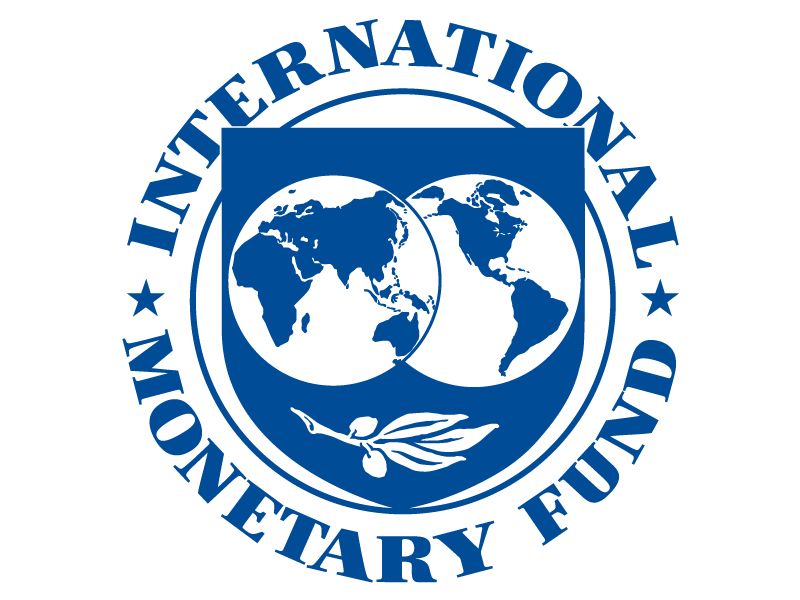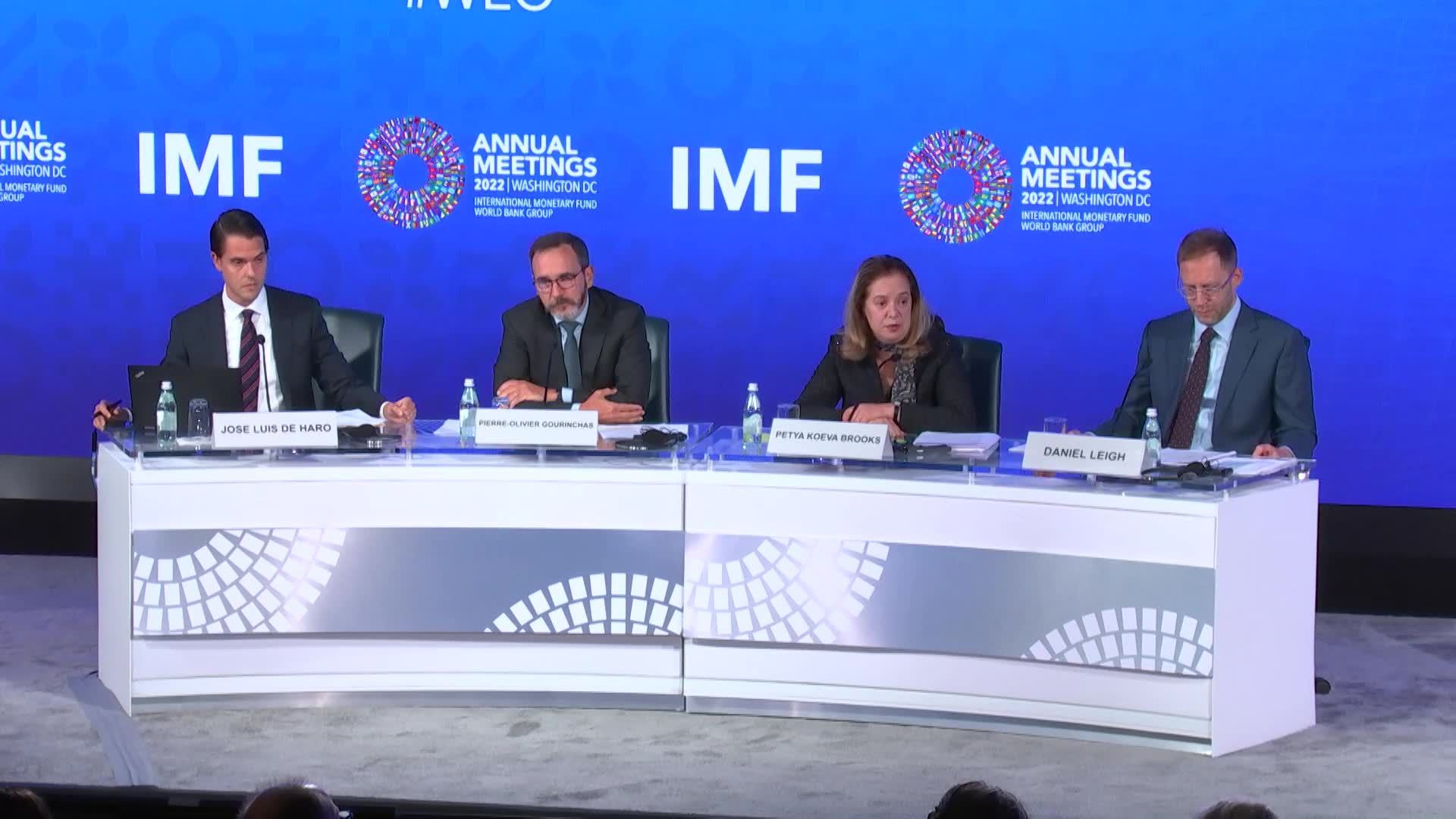The IMF issued a gloomy forecast for global growth, downgrading its forecast for 2023 in its World Economic Outlook report issued Tuesday in Washington, D.C.
IMF Chief Economist Pierre-Olivier Gourinchas, Petya Koeva Brooks and Daniel Leigh answered questions on how the current turbulence will shape things in the months to come.
The IMF chief economist opened with a broad look at the growth forecast for the next year, which is likely to be much lower than expected, due to several main factors.
“The global economy continues to face steep challenges. Shaped by three powerful forces, the Russian invasion of Ukraine, the cost of living crisis caused by persistent and broadening inflation pressures, and the slowdown in China,” Gourinchas said at a news conference launching the report at the IMF’s Annual Meetings.
Gourinchas also highlighted the continuing impact the war in Ukraine is having on the global energy crisis.
“The war in Ukraine is still raging and further escalation can exacerbate the energy crisis. Our October World Economic Outlook Report presents a risk assessment around or baseline projections. With 25% probability, global growth next year could slow down to below 2%, a historically low level. We've only had that five times since 1970. ”
When asked about the continued risk new COVID-19 variants would have, Gourinchas said progress was being made, although he suggested China’s continued lockdown regulations are an exception.
“An important exception is China, where a different health policy path has been charted. And as a result, the country is still facing continued, localized, but important sometimes lockdowns. And that's something that is weighing down on Chinese economic activity in our in our baseline forecasts because of the continuation of zero-covid policy, ” said the IMF’s Chief Economist.
IMF Economist Petya Koeva Brooks provided new insight on the impact that rising inflation and the energy crisis is having the Italian economy.
“We are expecting Italy to enter a technical recession in the coming quarters. And a big impact has come from the energy crisis and the elevated inflation and the adverse impact on real incomes. So when it comes to the risks to this outlook, they are getting very much on the downside. And again, they are related to even further impact coming from energy markets,” she said.
The panel was asked to turn their attention to the Horn of Africa, where there is a severe humanitarian crisis. In addition to high debt levels and a strengthening US dollar, IMF Economist Daniel Leigh highlighted low vaccination rates in the region as one of the factors in the continuing financial stress caused by the pandemic.
“It is a region very severely affected by the war in Ukraine. The food, fuel and fertilizer price spike is having a negative effect on agriculture and a broad part of the economy. On top of that, this is one of the parts of the world where the COVID shock is still really severe in terms of the very low vaccination rates, 26% only in sub-Saharan Africa, compared to 66% in the rest of the world. Only 2% have a booster compared to a third to a half in the rest of the world. So on top of that, the global slowdown means less demand for the products of the region. And then on top of that, the higher interest rates, low growth means that two thirds of the countries in the regions are facing stress or debt distress. So this is why the attention here is very much on providing relief, also in terms of supporting the common framework to avoid the debt crisis from spreading,” Said Daniel Leigh.

